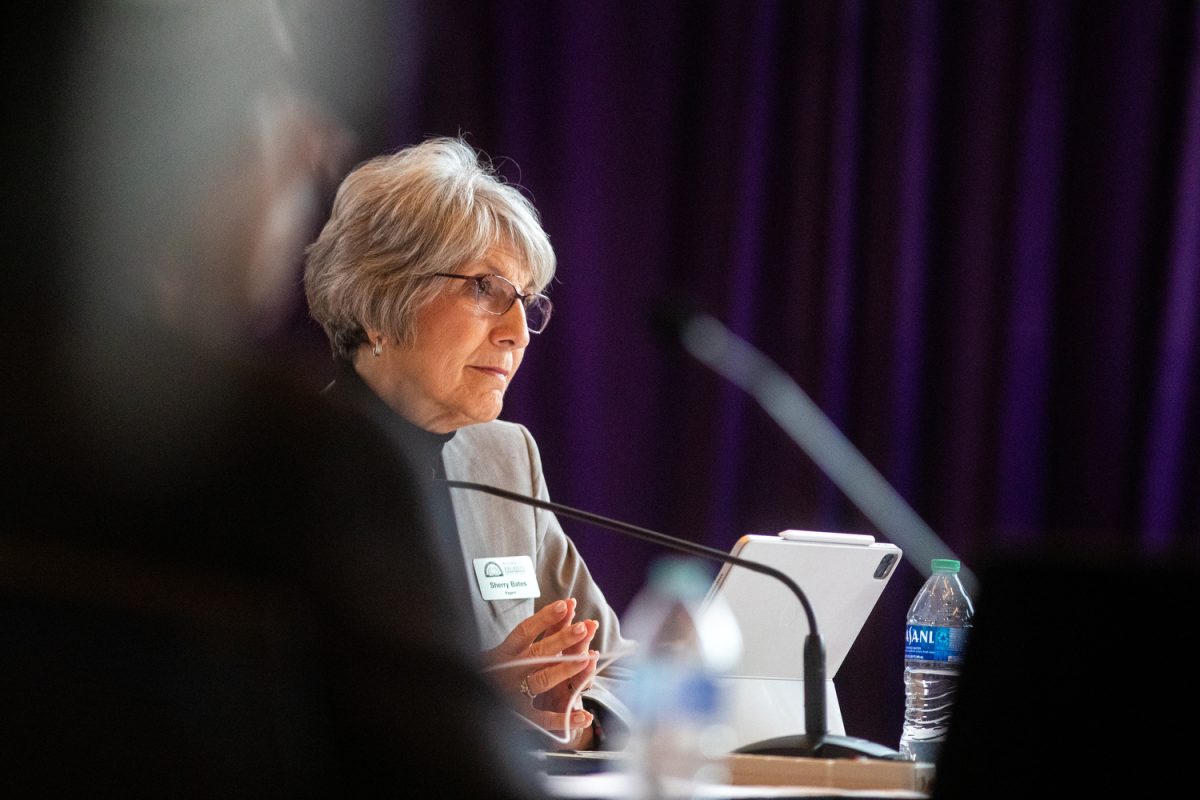Doctors need nurses, and so do Iowans.
There has been a shortage of Iowa nurses for the last couple of years, and the University of Iowa officials are attempting to narrow the gap by expanding online education for aspiring nurses.
“The nursing shortage may be caused by a number of factors,” said Shirley Beaver, the dean of the School of Nursing at Mercy College of Health Sciences. “The first one is that baby boomers are aging and require more care, and the second is that baby boomers are also retiring and we need more workers to replace them.”
Better Futures for Iowans is a plan established by the UI that supplies a number of programs that will help those unable to come to the university receive a bachelor’s degree.
“There are four outreach programs that are partnered with each of the upward divisions for Better Futures for Iowans,” said Chet Rzonca, associate provost and dean of Continuing Education.
The four programs involved in this are the UI Bachelor’s of Business Administration, the Bachelor’s of Applied Studies, the Bachelor’s of the College of Liberal Arts and Sciences, and Nursing.
One of the reasons for the shortage is the fact that nurses are retiring, but this is not the only reason for the program’s expansion, Rzonca said.
“What will likely drive involvement is the recommendation report released by the Institute of Medicine,” said Rita Frantz, dean of the College of Nursing at the UI. “The report called for nurses in the workforce to have to complete a bachelor’s degree.”
The goal for Iowa is to have 80 percent of practicing nurses with a bachelor’s degree.
However, Iowa also requires more total nurses because of the amount of rural areas.
“There are not enough nurses in a rural area, which causes a shortage, but that won’t be the case for states with more urban regions,” Beaver said.
The program is online, and is also available to 16 different community colleges statewide. The program does require that some classes and practices take place at the college, but most of the learning is done online.
“Students could still be employed as a registered nurse or won’t have to uproot their family to complete a bachelor’s degree,” Frantz said.





